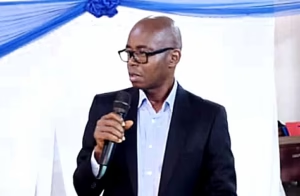Polytechnic Governing Council Chairmen Advocate for HND to B.Tech Conversion, Reforms in Technical Education
The communiqué recommended upgrading the Higher National Diploma (HND) to a Bachelor of Technology (B.Tech) degree, with admission requirements including O’ Level certificates, National Diploma (ND), and Industrial Training (IT) certification.

CALABAR – Chairmen of Governing Councils (CGC) of Nigerian polytechnics have called for significant reforms in the country’s technical education sector, including the conversion of the National Board for Technical Education (NBTE) into a full-fledged commission.
The recommendations were made in a communiqué issued at the end of a week-long retreat held in Calabar, Cross River State, from February 9 to 14, 2025.
According to Dr. Y. M. Bande, Secretary of the Chairmen of Federal Polytechnics, the move is aimed at enhancing technical education and equipping Nigerian youths with skills relevant to the modern workforce.
“The Committee has identified key areas that will drive the future of technical education and skills development in Nigeria. Skills acquisition is the future of global economies, and Nigerian youths must not be left behind,” Dr. Bande stated.
Key Recommendations from the Retreat
1. Establishment of a Polytechnic Commission
The CGC highlighted the need to transform NBTE into a commission, noting that while universities, colleges of education, and other tertiary institutions have regulatory commissions, polytechnics remain under a board that also oversees vocational and entrepreneurial institutions.
2. HND to B.Tech Conversion
The communiqué recommended upgrading the Higher National Diploma (HND) to a Bachelor of Technology (B.Tech) degree, with admission requirements including O’ Level certificates, National Diploma (ND), and Industrial Training (IT) certification.
3. Absorption of Outsourced Staff
The Chairmen called on the federal government to directly employ cleaning and security staff in polytechnics, aligning with practices in other tertiary institutions.
4. Improved Power Supply
The retreat proposed that the Rural Electrification Agency (REA) be directed to provide solar-powered electricity to polytechnics across the country.
5. Creation of a Skills Development Fund
A dedicated fund should be established to support skill training and innovation in polytechnics.
6. Security and Land Protection
The CGC urged the government to fence polytechnic campuses to prevent land encroachment and enhance security.
7. Guidelines for New Polytechnics
The retreat emphasized the need for proper feasibility studies before the establishment of new polytechnics to prevent wastage of government resources.
8. Curriculum Review and Special Funding
The council called for increased funding to update polytechnic curricula to align with current technological advancements.
9. TETFund Intervention in 2025
The Chairmen opposed government restrictions limiting TETFund interventions to polytechnics with over 1,000 students, arguing that such policies would hinder the growth of newer institutions.
10. ₦100 Billion Agricultural Technology Fund
The communiqué proposed a special intervention fund for polytechnics offering agricultural technology courses, provided they have adequate farmland for large-scale agricultural production.
The CGC expressed appreciation to the Cross River State Government and the host institution, Federal Polytechnic Ugep, for their hospitality during the retreat. The Chairmen also thanked President Bola Ahmed Tinubu and Minister of Education, Dr. Tunji Alausa, for entrusting them with the oversight of federal polytechnics in Nigeria.





